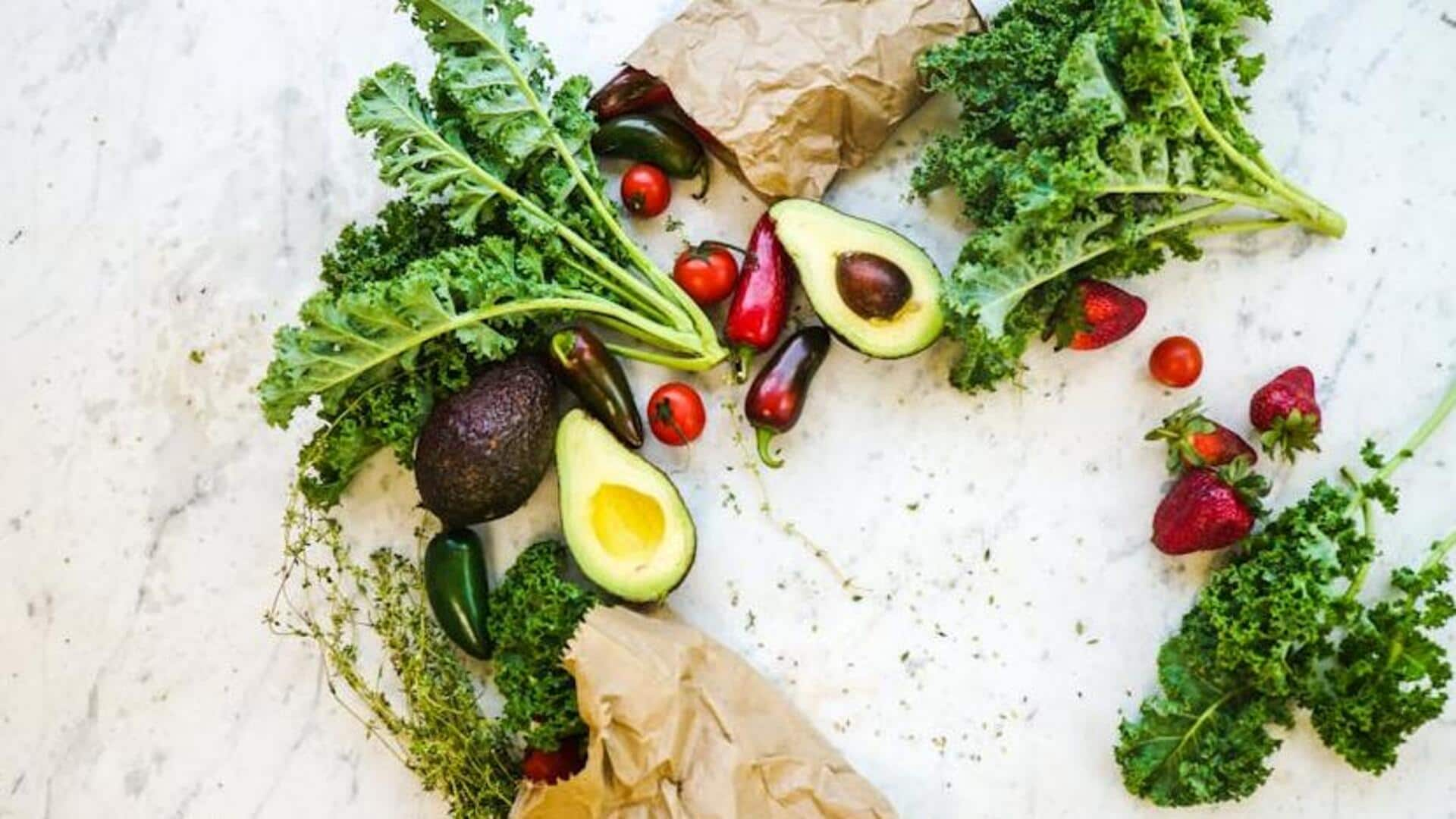
Embracing the plant-based Mediterranean lifestyle
What's the story
The plant-based Mediterranean diet emphasizes the heart-healthy principles of its traditional counterpart, focusing on fruits, vegetables, whole grains, nuts, seeds, and legumes. It aims to minimize processed foods and sugars, benefiting both individual health and the environment. This diet encourages a diverse intake of plant-based foods to ensure a broad spectrum of nutrients for maintaining overall well-being, aligning with sustainable eating practices.
Ingredient 1
The heart of your plate: Vegetables
Vegetables are the cornerstone of a plant-based Mediterranean diet. They are loaded with vitamins, minerals, and fiber, which are essential for maintaining a healthy body and mind. Aim to fill half your plate with a colorful variety of vegetables at each meal. This not only ensures you get a wide range of nutrients but also adds vibrancy and flavor to your dishes.
Ingredient 2
Whole grains: A staple
Whole grains like quinoa, farro, barley, and whole wheat pasta play a significant role in this diet. They provide essential nutrients such as B vitamins and minerals like iron and magnesium. Additionally, they are an excellent source of fiber, which can help in digestion and keep you feeling full longer. Incorporating whole grains into your meals adds texture and depth to your dishes.
Ingredient 3
Nuts and seeds: Nutrient powerhouses
Nuts and seeds are rich in protein, healthy fats, particularly omega-3 fatty acids, vitamins, and minerals. These nutrients support brain health and reduce body inflammation. Adding a small handful of nuts or seeds to your daily diet enhances satiety between meals. They also add unique flavors to salads, cereals, or can be enjoyed as standalone snacks, enriching your dietary experience.
Dish 1
Legumes: Protein-rich staples
Legumes such as lentils, chickpeas, peas and beans are an excellent source of plant-based protein, which is crucial for muscle repair and growth. They're also rich in fiber, which aids in digestion and helps maintain blood sugar levels. Integrating legumes into your diet through dishes like stews or salads not only boosts protein intake but also contributes to fulfilling meal experiences without meat.
Dish 2
Fruits: Sweet nutritional treats
Fruits are key in providing antioxidants that combat oxidative stress, which contributes to aging and diseases. Including a variety of fruits in your diet ensures you receive essential vitamins like vitamin C from oranges and potassium from bananas. These support overall health, including heart function, by offering a range of nutrients crucial for maintenance and well-being.